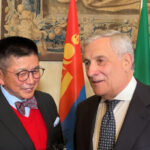The peace and prosperity of a nation depend on the quality of democracy, the foundations of a market economy, and ability to innovate. People’s livelihoods are most impacted by how strong the foundations of the market economy are. But the free market system is coming under stronger scrutiny and criticism today.
This criticism has asserted that the free market and capitalist economy fuel social disparity and push people to a consumer society, eventually causing climate change. There is a strongly emerging view that the free market cannot regulate economic relations adequately.
There are two types of capitalism today – 1) free market capitalism with fair competition, and 2) a state-powered economy with unfair competition. The latter is also referred to as ‘crony capitalism’. Crony capitalism has been spreading in most developing countries and is the reason why the reputation of the free market economy is being damaged. The Wall Street Journal reported in 2015 that crony capitalism causes people to withdraw their support for capitalism.
Crony capitalism means that the government or the authorities provide an unfair advantage to their close companions, including family members, friends, and associates, and eventually establish a monopoly in a given industry. This type of unfair advantage is given in the form of granting soft loans, issuing special permits, or restricting other companies from taking part in specific activities. It is not viewed as corruption because such decisions are made within legal boundaries. That’s why it is often labelled to as ‘legalised theft’.
Crony-capitalism index
The term ‘crony capitalism’ was first coined during the Asian financial crisis in 1997-1998. University of California professor Andrew MacIntyre explained that the underlying cause of the crisis was crony capitalism, using the examples of Indonesia and Thailand. The crisis hit many Southeast Asian countries and was triggered by massive inflows of ‘hot money’ intended to generate short-term profits based on interest rate differences. This inflow of foreign capital and movement of money was carried out by governments who did it together with their cronies – family members, friends, and close associates.
The Economist published a crony-capitalism index in 2014 and 2016. The index focuses on ten sectors that have the strongest likelihood of a monopoly and are highly dependent on the government and special permits. These sectors include
- casinos
- coal and timber preparation
- defence
- deposit-taking banking
- infrastructure
- airports
- real estate and construction
- steel and metal processing
- mining and commodities
- utilities and telecoms services. Then they use the wealth of billionaires in those sectors based on data published by Forbes. The premise is that the bigger the ratio between the billionaire wealth and national GDP, more the economy suffers from crony capitalism.
Russia led the 2016 index, which covered 23 countries, while the 2014 index had Hong Kong in first place with the ‘croniest capitalism’. In Russia, the billionaire wealth in the select sectors equalled 18 per cent of national GDP, while the billionaire wealth in other sectors equalled only 1.8 per cent.

Crony-capitalist business flourishing in Mongolia
Mongolia is becoming more and more eligible for the crony-capitalism index. Our crony sectors include coal, deposit-taking banking, infrastructure, real estate and construction, mining and commodities, and telecoms services. It begs the question whether any of these sectors hasn’t had involvement from the authorities and decision makers from the present and the past. We have many MPs who pass laws that are directly relevant to their own business activities, ministers who provide advantages to their own businesses using funds from the public budget, and also MPs who have their own banks.
Mongolia’s crony capitalism is even growing in sectors that are less likely to suffer from a monopoly. It has become a difficult task to find a states person who doesn’t have their own non-banking financial institution, hasn’t founded a private university, hasn’t taken ownership of an asset during privatisation, doesn’t own a licence to a mineral deposit, hasn’t bought land, or doesn’t own their media outlet. They have all been making laws that gave their business an advantage, receiving soft loans or grants to their own business activities, and providing business advantages to either themselves or their cronies.
The Mongolian state has established many different funds, founded its own bank, and funded its own companies by issuing bonds and raising external loans. All land surrounding Bogd Mountain is now sold, and so are all parks and any other valuable land in the capital city. Under the name of the price stabilisation program and housing mortgages, the authorities have also funded their own companies using public funds. As a result, prices went up and people’s purchasing power has fallen to the floor. Due to enormous loans raised in foreign currencies, the tugrug has drastically weakened.
It has recently been revealed how 15 MPs misused the billions of tugrugs intended for SME development and laundered money through their own non-banking financial institutions. However, just like many other corruption cases in the past, the SME scandal is also being quietly wiped away from the public’s memory.
As crony capitalism and state-powered businesses flourish in Mongolia, it is becoming increasingly difficult for people to do business using their own skills, talent, and capital. Therefore, many people are choosing to go abroad seeking employment.
It is time to fight crony capitalism by mobilising private sector business associations and also the National Chamber of Commerce and Industry, which has legally binding responsibilities. It is time to create free competition. If we’re too late, the same fate as Venezuela awaits us.
Mongolian businesses and companies now need to decide whether to complete a short distance quickly by mixing with the state or complete a long distance surely by creating free competition.
2019.02.13
Trans. by B.Amar












